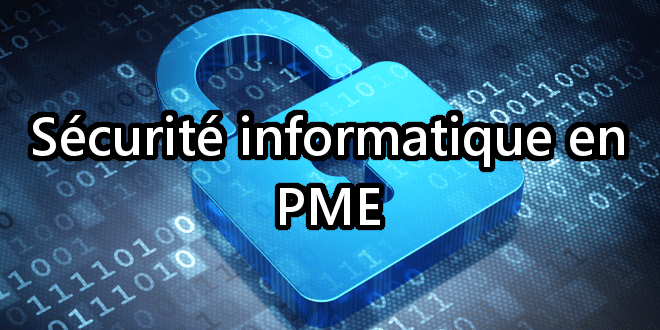
Some tips for not being hacked when you're a small business
The recent health crisis has shown that SMEs are as exposed as large companies to cyber threats.
That's why it's essential that they start developing protocols to secure their computer systems. In this case article we will give some usual advice you will get back enough SMEs to increase the security of their computer networks.
This article will also interest you: Cyberattacks, SMEs on the front line
Before anything, we have to explain the importance of protecting ourselves. The majority of small and medium-sized enterprises are not concerned about this aspect of their internal development. Having a reliable security system within the company not only protects the company's business, but also protects certain assets that will essentially have to be covered by intellectual protection. The reasons for these small businesses neglecting IT security are both culture and financing. Indeed, the majority of leaders of small and medium-sized enterprises are generally untrained on the issue of cybersecurity and persistent threats in full development. Moreover, it considers that it has limited resources for this, they do not devote enough, or even to their computer security. However, when computer incidents occur, the impact is so great that some are forced to close the doors.
Cybercrime is becoming increasingly interested in SMEs because they know that it is no longer easy to attack large companies investing much more time to strengthen the security of their systems.
In practice there are several techniques to protect against computer attacks. This may then involve certain behaviours, a good culture in the field of cybersecurity, as well as some predisposition and anticipation in the organization of SMEs
1- Raising awareness and training of its team on cyber threats
Computer security experts are all unanimous on a fact. The main security flaw and human being. In a company usually refers to employees, employees and even the manager. We should raise awareness around ourselves about the various threats that remain in the IT field is to train our staff on how to avoid them. For example, we know that good digital hygiene of staff significantly reduces the risk of computer attacks on business systems. The training could then focus on the most commonly used and even the most unrecognized hacking techniques. To do this, it is recommended to call on specialists in the sector.
2- Putting protection systems in place
Every company has to protect its system. To do this, there are several security solutions on the market. The first obstacle that more cybercriminal encounters when it tries to illegally break into your system is of course on the firewall. In large companies for example, almost all computers see all computers are equipped with a security firewall that filters inflows and exits. There are different types and you will be very satisfied in this growing market.
3- Externally backing up data
Safeguards in several interests. Indeed, they will make it easier to recover important information when you are still under a computer attack. Because it has to be meant no matter what you do, no one is completely safe from a cyberattack. In this context, backups can be useful. In addition, in case of loss of computer equipment. The need for a being easily fulfilled. To do this, it is recommended to use cloud backup services. The backup would have to be automatic and regular.
4- Securing messaging apps
Applications used to exchange within the company must be secure. Because it is a privileged gateway for cyber criminals. This too is a danger to the confidentiality of trade as well as to the protection of certain intellectual rights. Solutions do exist for safe exchanges. However, updating messaging services can only be safe if users take the trouble to comply with certain security measures.
Now access an unlimited number of passwords:
